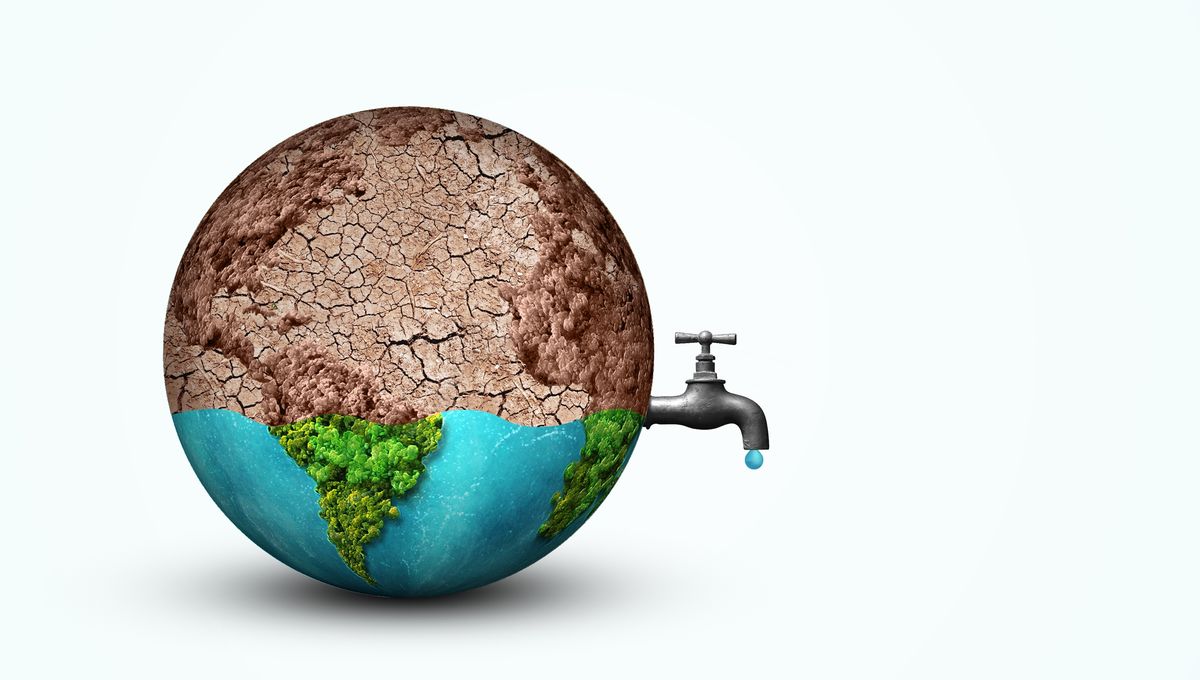
“Water, water everywhere, and not a drop to drink.” So wrote Coleridge in 1834, unwittingly providing a pretty good description of the planet Earth: so inundated with water that our world looks blue from space, and yet only about 2.5 percent of it is actually drinkable – i.e. freshwater.
Of that, almost all is groundwater – 99 percent, in fact, of all liquid freshwater is found in this form, hiding just under the Earth’s surface in cracks and pores of rock and sediment. It’s a crucial resource for some 2.5 billion people today, providing drinking water and irrigating crops – even generating energy and powering industries. So you’d think we’d keep an eye on how much we’re getting through.
Instead, the world has been “squandering groundwater like there’s no tomorrow,” Hansjörg Seybold, Senior Scientist in the Department of Environmental Systems Science at ETH Zurich, told SciTechDaily. He’s a co-author of a new study into global groundwater decline, published last month – the findings of which provide a sobering look at humanity’s water consumption across the globe.
Researchers “analyzed groundwater-level measurements taken over the last two decades from 170,000 wells in about 1,700 aquifer systems,” wrote Mohammad Shamsudduha, co-author of the paper and an Associate Professor in the UCL Institute for Risk and Disaster Reduction, in a blog post on the research.
“This is the first study that has mapped trends in groundwater levels using ground-based data at the global scale in such an unprecedented detail that no computer models or satellite missions have achieved this so far.”
What they found was an unprecedented decline in global groundwater levels: reductions of more than 10 centimeters (3.9 inches) per year in 36 percent – more than one in three – of sampled aquifer systems. In one-third of those, water was disappearing even faster – by more than 50 centimeters (19.7 inches) annually in 12 percent of the total number of aquifers.
“We weren’t surprised that groundwater levels have fallen sharply worldwide,” Seybold told SciTechDaily, “but we were shocked at how the pace has picked up in the past two decades.”
The study covered more than 40 countries, but some stood out for their severity: West Qazvin Plain, in Iran, for example, is drying out faster than it used to, as is Lobo Flat in Texas. Areas like these are particularly vulnerable to groundwater depletion – their populations are growing, the natural conditions are arid, and the climate crisis is only making it hotter, drier, and less predictable.
Even outside of such desert climes, groundwater loss is bad news. “Sustained groundwater depletion can cause seawater intrusion in coastal areas, land subsidence, streamflow depletion and wells running dry,” wrote Shamsudduha. “Depletion of aquifers can seriously affect water and food security, and natural functioning of wetlands and rivers, and more critically, access to clean and convenient freshwater for all.”
But there is good news. In amongst all the loss, there are pockets where groundwater reserves are showing a bounce back – areas where aquifer depletion is slowing, or even reversing course. Where strong regulations have been brought in to tackle water use, the effect has been particularly strong: pumping fees and licensing of wells have bolstered groundwater reserves in Thailand’s Bangkok basin, for example, while losses in Iran’s Abbas-e Sharghi basin were reversed by the diversion of water from a large dam in the west of the country.
“Such examples are a ray of hope,” Scott Jasechko, a researcher at the University of California, Santa Barbara, and lead author of the paper, told SciTechNews. But they’re far from guaranteed: “Once heavily depleted, aquifers in semi-deserts and deserts may require hundreds of years to recover because there’s simply not enough rainfall to swiftly replenish these aquifers,” he added.
Time is ticking. If groundwater reserves get too low, whole ecosystems and economies can be threatened: land can subside, wells can run dry, and water salinization can permanently destroy farms’ and wildlife’s chances of thriving.
“That’s why we can’t put the problem on the back burner,” warned Seybold. “The world must take urgent action.”
“roundwater levels don’t always have to go only one way: down.”
The paper is published in the journal Nature.
Source Link: The World's Groundwater Is Disappearing Like Never Before, But There Is Good News